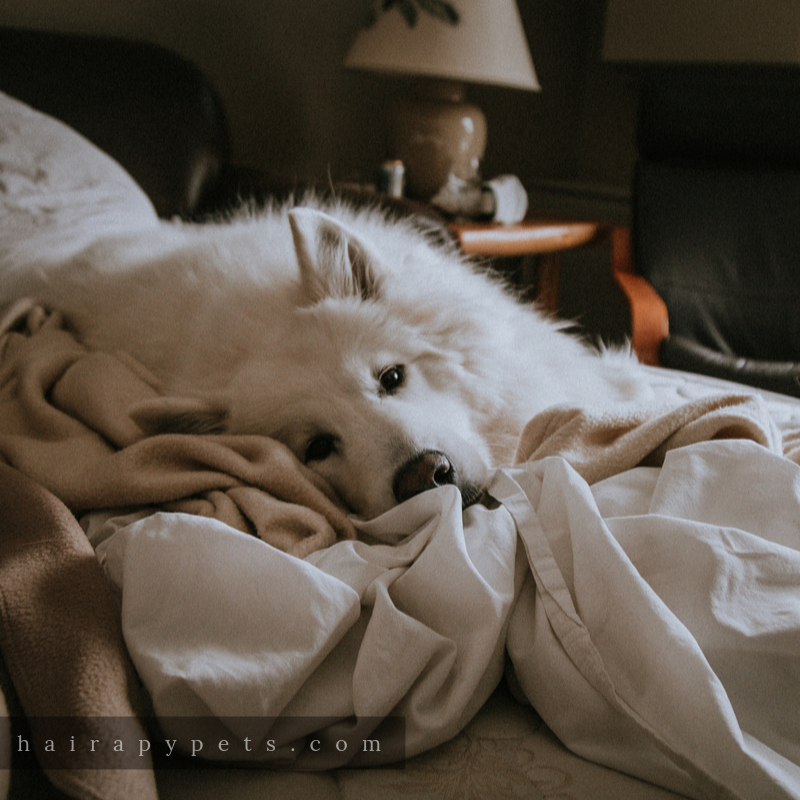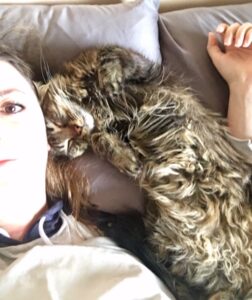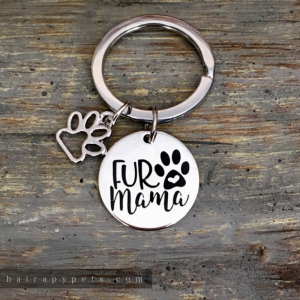
Our pets are a gift to us in many capacities, enriching our lives in unique ways only their species can. An unfortunate reality that comes with having a beloved pet is the occasional rough patches relating to their health. Their bodies seem to be much more sensitive than ours, their risks higher, and their lives shorter. If you are lucky then it will be smooth-sailing from the day you bring them home until ten to twenty years later when they age naturally and pass gracefully. For most of us there will be some periods of time that our pets give us a good scare, test our inner strength, require extra nurturing, and cost us money. The best things in life are free – until they’re not! This is a responsibility we take on the day we decide to bring them into our homes, lives, and hearts. With the good comes some bad, and our pets deserve to be embraced through sickness and in health. Given what they provide us with it is the least we can do. Read on for some dos and don’ts if your pet gets sick or injured.

CARING FOR YOUR PET
When in doubt, just go to the vet
Money is tight, I know. Or it’s the middle of the night on a week night and you have to get up early. Or you aren’t sure if you’re over-reacting, but you feel very unsettled by how your pet is seeming or acting. And you don’t want to stress them out unnecessarily by forcing them into their carrier and driving to the emergency animal hospital. All completely relatable reasons to put it off. However, this is a gamble that should not be tested. There is a chance that the vet will tell you it’s something minor and send you on your way. You might cringe a little at the unnecessary cost of having taken them in, but you will have peace of mind and they will soon recover from the mild stress. The alternative risk is waiting until their condition gets much worse or it’s even too late. Pets can’t speak to us with words, so we don’t ever truly know how they are feeling. Trust your intuition. And always error on the side of caution, even if you’re being paranoid.
My cat Liam was recently acting strange one morning, jumping in and out of the litter box, straining, and meowing. Yet he was completely mobile, walking around the house, and he even ate his breakfast with ease. I was conflicted, thinking it could simply be an episode of constipation that would pass but decided to take him in right away. It turned out he had a stone causing a bladder obstruction and he needed emergency surgery. If I had waited until the next day or even the evening, the vet said it could have been too late. Some ailments are more serious than others. Urinary obstructions in cats happen to be extremely serious and time-sensitive, and are apparently very common in male cats – something I surprisingly had no knowledge of.

Keep the cone on!
I completely empathize with how difficult it is watching your pet struggle with their cone once home from the vet. They already feel terrible and now have to deal with this and you can’t explain to them why. But there’s a reason why your vet sent them home with a cone. As tempting as it is to remove it early or altogether, it MUST stay on until your vet gives you the okay to remove it, or even longer. The risk of them chewing on or excessively licking the surgical incision site or injury is just not worth it. Not only will that most likely lead to infection, but it can also result in them tearing out their stitches prematurely and/or worsening the injury, sometimes to the point of non-repair. There have been horror stories relating to this without a happy ending. PLEASE keep the cone on. The first couple days are the roughest but animals are pretty adaptable and they typically will get used to the cone over time. If they are just too uncomfortable, then purchase a softer cone from Amazon or somewhere – as long as it’s durable and large enough to do it’s job and keep their mouths and claws away from the site. Your pet depends on you to be the responsible one.

Create a downpour of comfort and affection
Even though some pets hide when they are sick or injured, be careful not to neglect them. Now is especially the time to shower them with love, without exceeding their comfort zone.
Now is not the time to leave them alone for a weekend, get an additional pet, have house guests over, or anything else that could shake up their world. Some things are unavoidable, but if you have to reschedule or postpone former obligations, do so. Excess stress can be detrimental to a pet’s health when they are already in a vulnerable state. Be mindful that what you may not consider stressful – such as loud music, strong perfume or fragrances, or home renovations, as examples – your pet probably does. Put your pet up at the top of your priority list right now to nurse them back to health. Keep the home as peaceful, healing, and comfortable for them as humanly possible.

Play calming music for your pet
I have experimented with soft, relaxing, instrumental music with my past two cats and both responded incredibly to it. If you search YouTube for “cat healing music,” “dog healing music,” or anything relating to those titles, hundreds of hits will come up that you can try out during times your pet needs some extra comfort or anxiety relief, especially if you have to leave them alone for a while. Try that or just play instrumental nature music. Test it out first and make sure they respond positively to it, of course. Vitamin C, my senior cat with multiple health issues the last few years of his life, went up to the CD player the music was coming from and laid down right next to it the first time I played it for him. He stayed peacefully in that spot for hours. I’d leave it on for him throughout the day sometimes to nap to when I sensed he needed it. Liam, during his recent recovery from the bladder obstruction, has responded extremely positively to the music as well. He seemed amped up one evening so I turned on a YouTube song for distressed cats and was shocked that within one minute he was laying down on his perch, and within five minutes he was peacefully asleep. This happened again a couple weeks later and is now my go-to method for soothing him or sending him off to sleep when he seems anxious. Not to mention, this puts me to sleep as well!

Find your strength
Be their rock. Keep consistent with their feedings, walks (if vet-approved), and any other daily routines they are used to. Plan on them pulling through. Never underestimate the power of your mind and thoughts! We create in our pets’ experience more than some may realize. This is not the time to jump ship or lose your cool. Be there for them.
Do not lose your patience when they are whining continuously or otherwise being difficult. Remember, they simply don’t feel well and don’t understand what’s happening. Yes, you are human. But when you lose your patience with your pet and yell at them, not only is this sad for them, but the guilt that follows can be unbearable, especially if the outcome of their ailment doesn’t work out in your favor. As if the grief of losing them isn’t bad enough, the last thing you would want to carry around is guilt over how you didn’t handle things as well as you could have.
Perhaps your pet has been diagnosed with diabetes and now needs ongoing insulin shots…but you’re scared of needles. Now is not the time to be squeamish. If your pet suddenly loses control of its bladder or bowels, do not under any circumstances scold or punish them. They need medical attention because it could mean something is not right physically. Push through and overcome your aversion to blood when dealing with your pets’ illness or injury. In other words, “man up” – as some would say. And yes, I’m speaking from experience with all of these scenarios. Luckily, this comes naturally for most of us in times of crisis.

CARING FOR YOURSELF
Your pet is not the only one struggling during this time. This event is also highly stressful for you – the caretaker – physically, mentally, and emotionally. Administering medication, soothing their cries, and nursing them back to health can take a huge toll on your sleep, diet, work, exercise, and self-care habits. Worrying about their health, comfort, and well-being will mostly likely lead to varying degrees of anxiety and depression. Although this time period will inevitably be challenging, there are some key points to keep in mind to maintain some peace in your life.
Seek comfort from those who truly understand and care – or at the very least, care because they truly care about you
Not everyone is going to get why you’re so distressed over “just a dog or cat.” Just accept that these are not your go-to people at the moment. There are plenty of people out there who do get it, so gravitate towards them when in need of guidance or comfort. Also keep in mind that some people may truly care about you and/or your pet, they just don’t know how to be supportive during this time. This could be for various reasons, such as because they’ve never been through it themselves and can’t relate, or because they just aren’t good at handling these things. And many well-meaning people fall short in the emotional support department because it’s simply not one of their strengths. Some people, when not knowing what to say or do to help someone makes them uncomfortable, will just avoid it altogether. Especially when medical issues are involved, for some. This can come across as cold but in their own odd way, they may subconsciously think they are helping more by not trying to help because they don’t want to say the wrong thing. Some people are more nurturing by nature than others. And be prepared for the possibility of people expressing shock or disapproval of how much money you’ve spent on your pet’s medical bills. Their opinion is the least of your problems right now. Hopefully you at least have one friend or family member who you can lean on during this time. If not, join an online support forum. There are many. Whatever it takes to get you through it, just don’t indulge to the point of obsession. Which leads into the next point…..

Do not put your life completely on hold. Keep functioning!
This does not mean that you ignore the fact that your pet is ill, neglect them, or live in denial. But it does mean that life must go on if you want to avoid additional stressors. Your main priority will be your pet but in order to maintain your mental and physical health, the show must go on. When home, aside from intensely tending to and loving your sick or injured pet, keep busy around the house. Keep yourself showered, family fed, laundry washed, floors swept, counters tidy, etc. Not only will the act of staying busy help regulate your emotions and pass time, but living in a messy house will not do anyone any favors right now. Cancel dates and appointments that you can, but take care of business as needed. Stay responsible and keep going to work when possible. However…..

Know your boundaries
On extremely rough days with your sick or injured pet, sometimes it’s better to just call out “sick” instead of trying to explain the situation to your boss or co-workers. Again, not everyone is going to understand. Unfortunately, not everyone takes the well-being of pets as seriously as “pet people” do. Gauge the situation and people involved, provide only as much information as necessary, fib a little if needed, and do what is best for you and your pet during this time. If it were a human child, no one would even flinch or question it. If you simply can’t make it to work today because your pet needs you and there’s no one else available to care for them, stay home. Sick and vacation days are for self-care, which is exactly what this is. When your pet is distressed then so are you.

Take care of yourself
When time allows, don’t forget to take that bubble bath, get a massage, or watch your favorite TV show. Get as much sleep as possible to avoid feeling run down and even more emotional than you already do, which sleep deprivation does. If you do not care for yourself then it will be difficult to care for someone else and your pet needs all of you right now.

Stay positive
Again, be aware of the power of your thoughts. Put on uplifting music throughout the day and funny movies or shows in the evening. Keep the energy of the house as light as possible. This is a rough patch that will most likely pass. Take things one day at a time and don’t forget to find gratitude along the way. And if the only thing you can currently appreciate is the fact that your pet has someone as loving as you to care for them while at their worst, that alone is worth celebrating.

(Featured photo by Josh Hild)


Thanks for the helpful info and the encouragement.
Great content! Super high-quality! Keep it up! 🙂
There is definately a lot to know about this subject. I love all of the points you made.